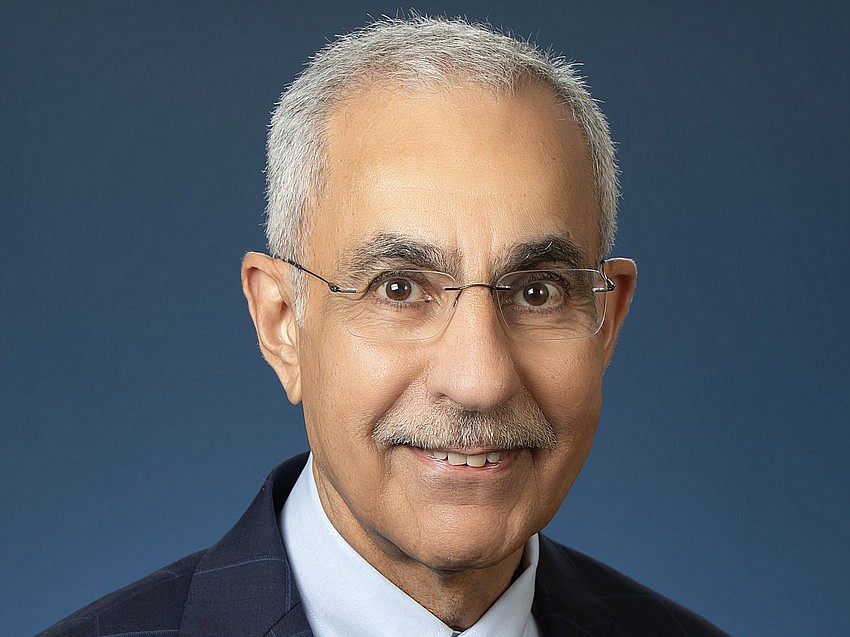
A $58.79 million incentives package for the Related Group’s proposed Downtown Southbank tower is on its way to the full Jacksonville City Council for a final vote after being passed by Council committees Sept. 30 and Oct. 1.
But with the city possibly facing budget deficits in coming years and with commitments for other development projects coming due, some Council members are calling for heightened scrutiny of future incentive requests to ensure they produce an optimal return on investment of tax dollars and will not overburden the city budget.
At issue are completion grants, which are typically part of incentive packages like the one for Related. The grants become due once a project is fully built or as work concludes on various phases of construction.
When Council approves an incentives package containing a completion grant, the money for that grant must be paid out of a future year’s general fund budget.
Under Related’s package, the city would place $39 million for the completion grant in escrow in 2025-26 which would be used for quarterly payments for the project. According to the Council auditor’s office, the city will be on the hook that year for as much as $76 million in completion grants when incentives for Related are combined with other commitments.
That alone is about as much as the city’s property tax revenue is growing annually at the current rate, meaning the completion grants could consume all of the city’s additional tax revenue unless the trend changes.
Meanwhile, the city committed to several big-ticket expenditures in coming years, including raises for first responders, the stadium deal with the Jacksonville Jaguars and the companion community benefits agreement.
Urging caution
Amid these and other factors, including projections by Council auditors of deficits of up to $105 million by 2028, Council members like Will Lahnen are urging caution in approving future incentive requests.

“I don’t think we’re painting any doomsday scenarios, but it is a time that when you look out a couple of years the projections are bigger,” he said. “So as we see other things come up, such as economic incentives Downtown or wherever, I think those are going to be heavily scrutinized to make sure they are a wise use of our city’s funds.”
Lahnen, a Finance Committee member, said he voted for the Related incentives because they fit the Downtown Investment Authority’s incentive program guidelines and had been accounted for in budget projections.
At-large Council member Ron Salem, chair of the Finance Committee, said he welcomed a more vigorous vetting of incentives. Two-plus years ago, at Salem’s lead, Council auditors began maintaining a spreadsheet showing when various completion grants would come due. Before that, Salem said, Council members didn’t necessarily know how the individual grants they were approving fit into the bigger budget picture.
He said that in suggesting the spreadsheet, he was hoping to generate better-informed discussions and decision-making on incentives.

“It’s easy to approve something if you don’t understand the implication of how it’s going to hit us in future years,” he said. “Related is a great example. We’re passing it now, but it’s really going to hit in a year from now or so.”
Salem said he was pleased that Lahnen, a first-term Council member, and others were focusing on the issue. The Oct. 1 Finance Committee meeting also included extensive questioning by member Raul Arias on a $500,000 incentive package for a proposed $6.8 million expansion of the Congaree & Penn farm, restaurant and event operation in Northwest Jacksonville.
“It’s great to see that the younger Council members are just as engaged as people like me who have been around awhile,” Salem said. “They’re acutely aware (of how expenditures are affecting the budget), and I think it’s sending a message to the administration that we’re going to scrutinize this stuff.”
Salem said the extra vetting wouldn’t necessarily result in a slowdown in incentives for Downtown revitalization projects and economic development proposals in other parts of the county.

Approach examined
The Special Committee on the Future of Downtown, which Salem launched this past summer while serving as Council president, is examining the city’s approach for Downtown project incentives, among other issues. Ideas include giving the Downtown Investment Authority an annual budget of, for example, $40 million to $50 million to offer to prospective developers.
“We all want Downtown to prosper and grow and everything else, but we have to be aware of the commitments we’re making through these projects,” Salem said.
As for the Related incentives, an amended version of the package cleared the Finance Committee on a 5-0 vote Oct. 1 after being passed a day earlier in the Rules Committee and the Neighborhoods, Community Services, Public Health and Safety Committee.
The incentives, contained in Ordinance 2024-0748, comprise a $39 million completion grant and a $19.79 million Recapture Enhanced Value Grant. Miami-based Related plans to build a 25-story tower on the former River City Brewing Co. site, a 3.02-acre property at 835 Museum Circle between the Acosta Bridge and Friendship Fountain.
The project would include an additional eight-story apartment building, nine-story parking garage, a 4,000-square-foot riverfront restaurant and a 1,000-square-foot ship store selling beverages, ice, snacks and other items to users of the nearby boat ramp. The total cost of the project would exceed $200 million.
In addition, Related would contribute a parcel of about 4,200 square feet for an expansion of the St. Johns Park space and would provide $3.98 million over 30 years for park maintenance.
Among the amendments, Related’s minimum equity requirement would be lowered to $60 million from $67 million.
Lori Boyer, DIA CEO, said the reduction was tied to recent and projected reductions in interest rates, which would allow Related to borrow more money toward the project.